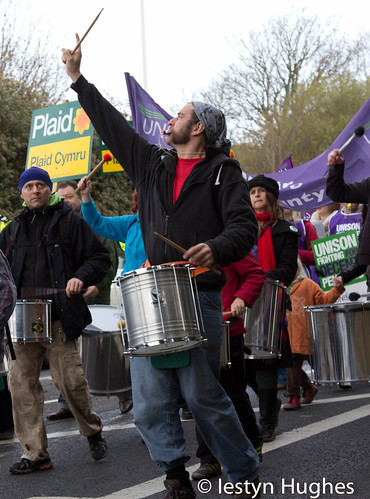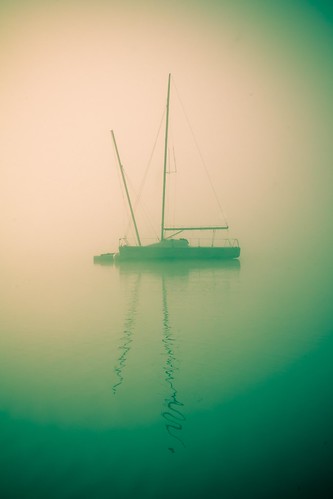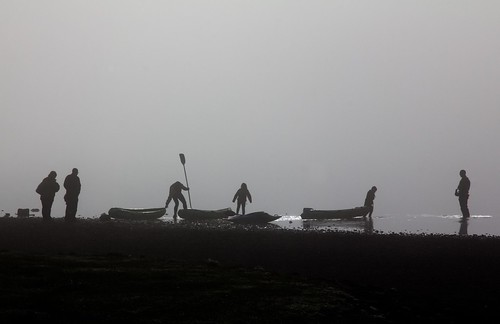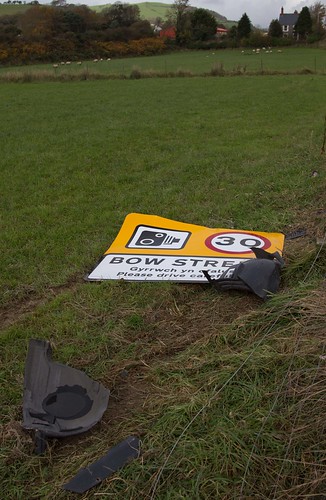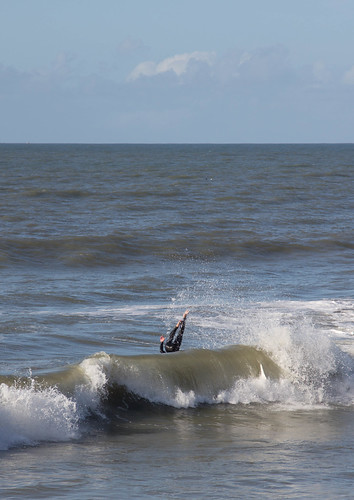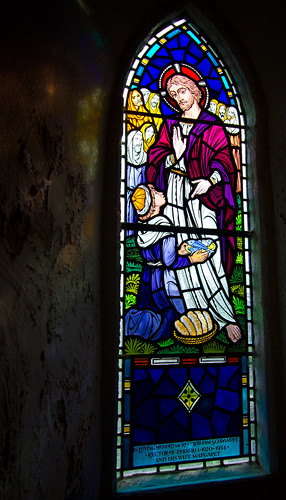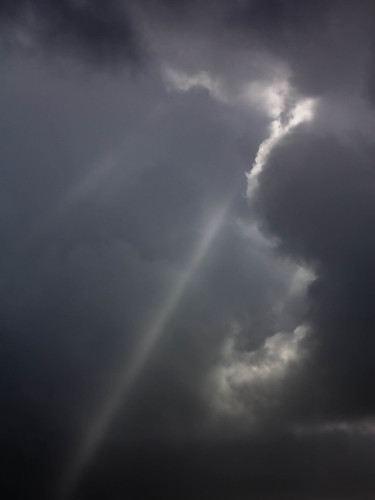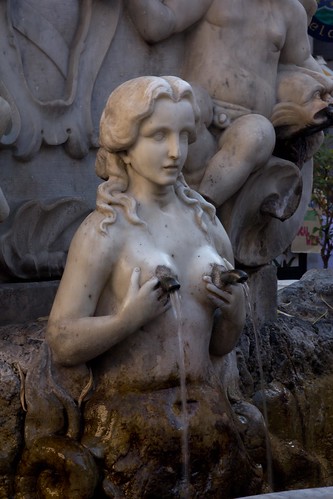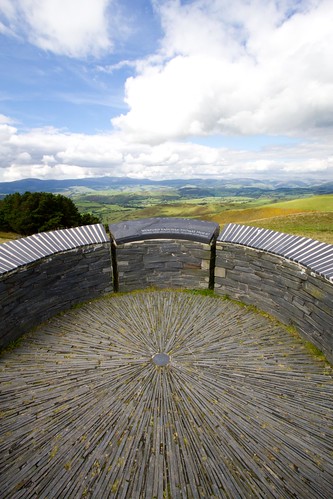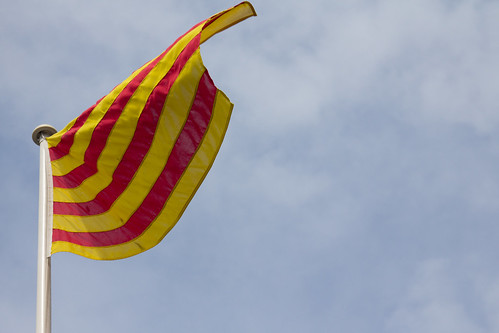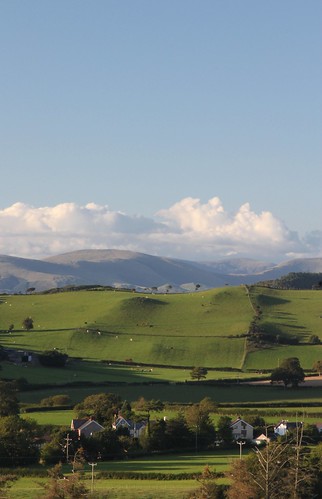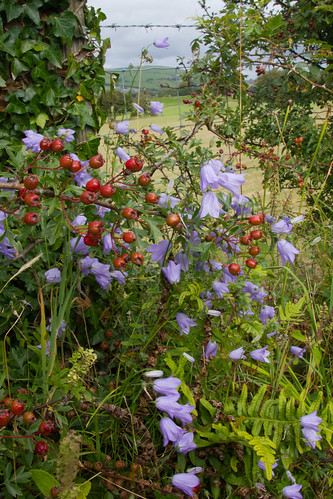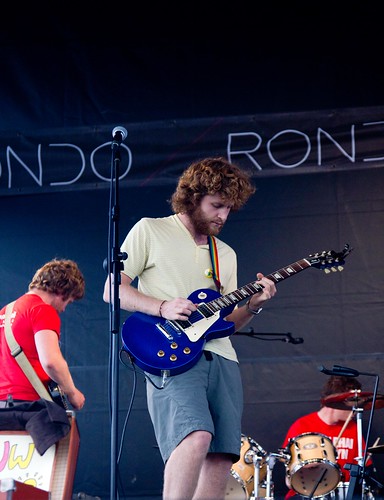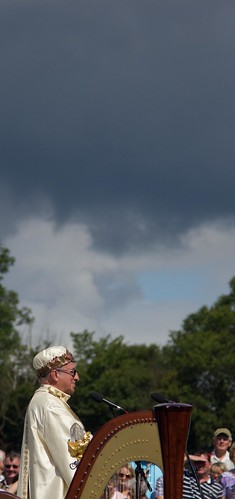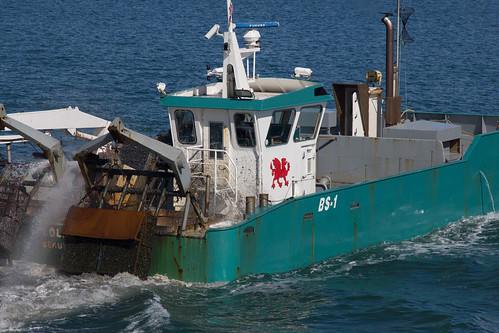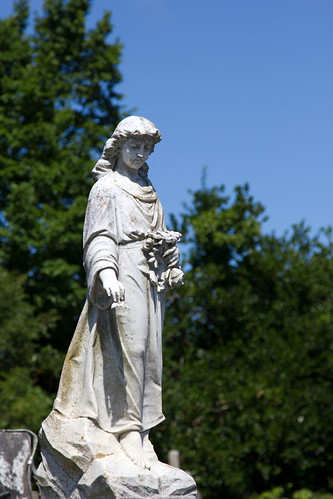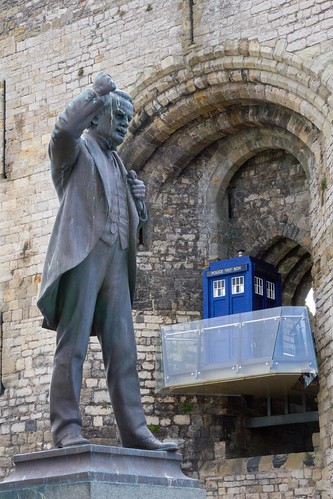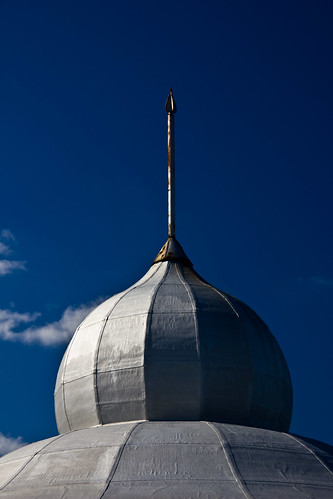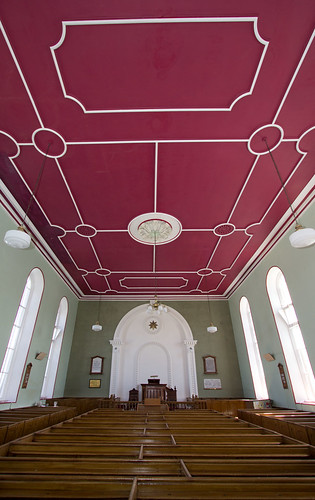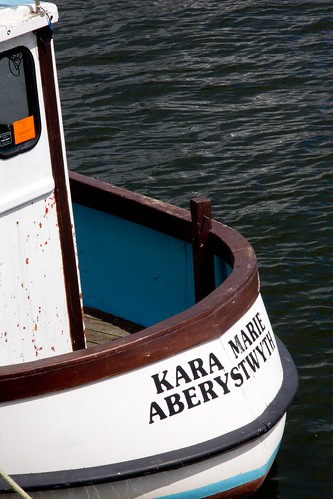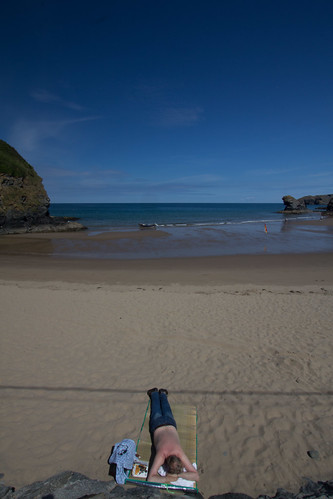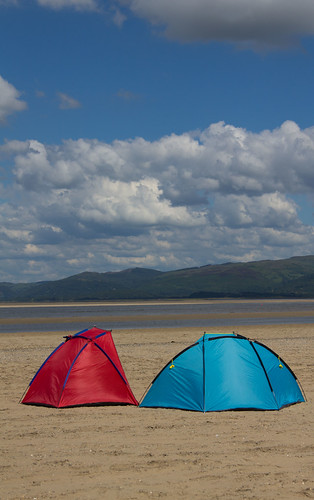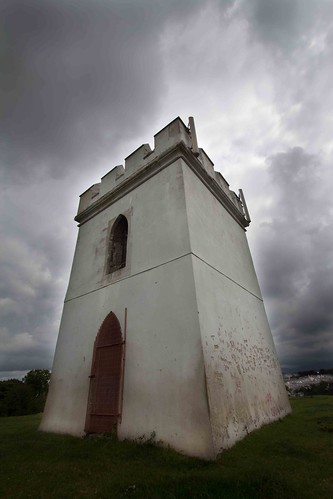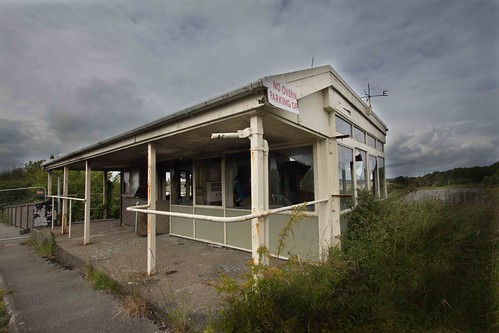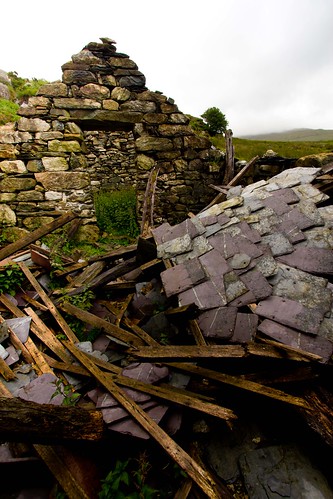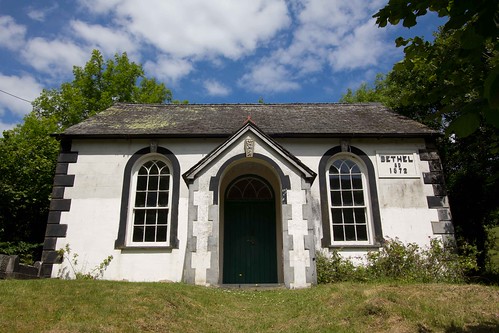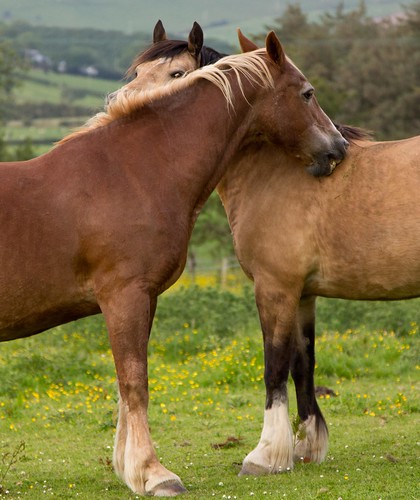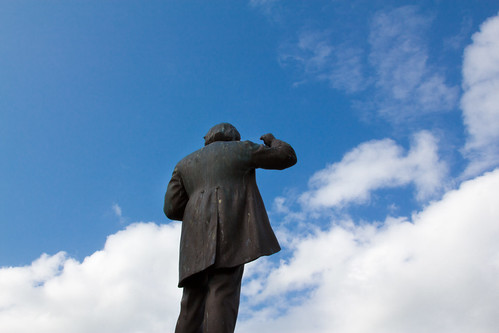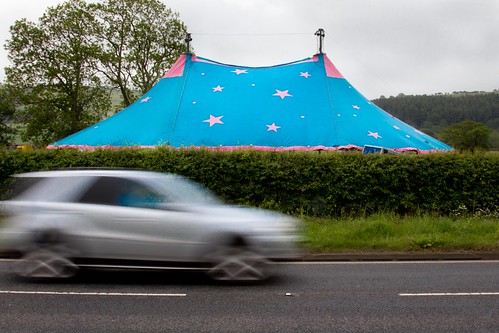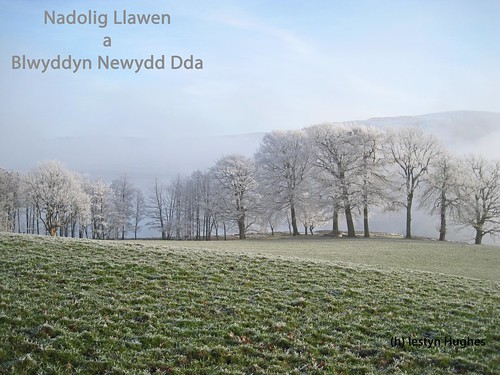
Friday, December 23, 2011
Wednesday, December 14, 2011
Photo of the day 14-12-11
Here's a photo of some film spools. More back of house pictures at my new website here
Not just the old Steenbecks, but also the shiny new MWA telecine units, which herald a new future and direction for the Archive!
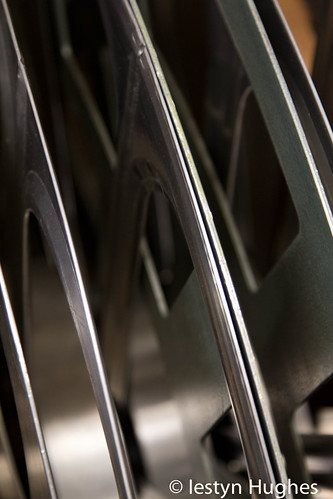
Wednesday, November 30, 2011
Thursday, November 24, 2011
What would you do with 1.8 billion?
Read the full press release here
Sunday, November 20, 2011
Wednesday, November 9, 2011
Tuesday, November 8, 2011
Digital film preservation in archives - presentations
Green Paper Consultation Deadline imminent
"The Green Paper looks at the ways in which the audiovisual sector is changing in response to technology developments and consumer expectations. It invites stakeholders to comment on the challenges and opportunities facing audiovisual media service providers, and in particular whether the regulatory and legal framework poses barriers to the cross border availability of online services in the EU. The Green Paper focuses in particular on the copyright licensing framework, and discusses a number of regulatory approaches to licensing. In addition, it looks at the remuneration of authors and performers for the online use of their works; and deals with certain special uses of audiovisual works"
Note the deadline for comments is 18 November.
Digital data archiving
Monday, November 7, 2011
Friday, November 4, 2011
Tuesday, November 1, 2011
2Bn anyone?
Monday, October 31, 2011
EU Commission recommends
"The Recommendation is an update of a first recommendation adopted in 2006. It takes account of Member States’ progress reports from 2008 and 2010, which show that although progress has been made, more and better action is needed as regards financial resources, quantitative targets for digitisation and solid support for Europeana. It also builds on the conclusions of the Comité des Sages, appointed by Commissioners Kroes and Vassiliou in 2010, on bringing Europe's cultural heritage online."
Scintillating stuff indeed.
Thursday, October 27, 2011
Today I have been mainly...
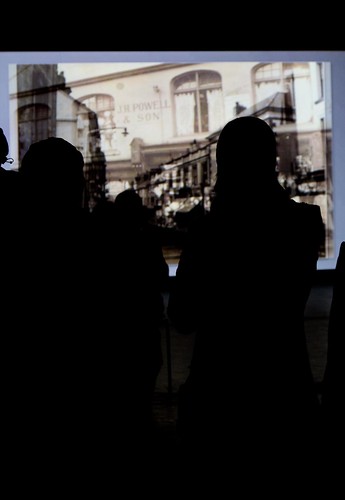
For the last couple of weeks I've been working on a project for Ffotoaber, putting together a show of photographs and moving image, historical and modern which was screened on the Aberystwyth Promenade over the last couple of nights.
Hard graft in the time available, but great fun, and a couple of hundred satisfied "customers".
With a lot of luck and a little money, Ffotoaber will hopefully continue into the future. A great example of how community spirit and a handful of get-up-and-go people can make things happen (i.e the organisers, not me).
Tuesday, October 18, 2011
BL sound archive gets what it deserves
Monday, October 17, 2011
Photo of the day 17-10-11
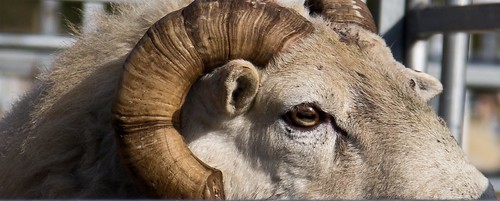
Just the other day I happened upon the tail end (sorry!) of a sheep sale.
This was the first foray of the month with a camera, as I've been too busy doing "other things", mainly picture research for a couple of books (not mine). One book down, one to go.
Mentioning books, there are a few second hand copies available of an old one of mine and Paul O'Leary - "Wales of one hundred years ago" (they don't make them like that any more). Lovely pictures from NLW and very interesting passages from the archives, if you're interested... various sellers... on Amazon
Sunday, October 16, 2011
Thanks - Diolch
This evening I looked at the blog stats and found that the majority of those peeking at the blog, including many users who return several times a month, mainly come from outside the UK.
So whoever you might be, I hope that you found the links I provide useful, and the pictures interesting - thanks to you from the following places and countries who have visited these pages over the last couple of weeks, from Nebraska, Texas, Vietnam, Cambridge (UK) Bangalore, Gloucester, Hyderabad, California (several of you), Wick, Paris (many of you), Wrexham, Leicester, Huddersfield, Moscow, Malvern, Lancaster, Poland (several), BBC London, LA, Norway, Peru, Santiago, Ohio (several of you), Brussels (several), Wedel, Oxford. Munchen, Melbourne, Aber Uni., New York, Amsterdam, Utrecht, Missouri, Barcelona, Dominican Republic, Brisbane, Prague, Monaco, Baku, Bratislava, Jerusalem, Utrecht, Koln, Meath, Stockholm, Basel, Sweden, Italy (several peekers), Lusaka, Malta, Edmonton, Brussels, Donegal, Bulgaria....
Like I said, thanks for looking!
Saturday, September 24, 2011
Digital Film Restoration in Archives
September 21-23, 2011 / Austrian Film Gallery Krems
In cooperation with Filmarchiv Austria and the Austrian Film Museum
"Join us in Krems, Austria, for the symposium “Digital Film Restoration within Archives”. Take part in panels and discussions on a wide range of theoretical subjects from restoration ethics to documentation, as well as on practical challenges of the new digital technologies, and share experiences with other archive and restoration professionals.
Participating archives & institutions: George Eastman House, EYE Film Institute Netherlands, Deutsche Kinemathek – Museum für Film und Fernsehen, Imperial War Museum London, Fuji Film Corporation, reto.ch Ltd, Danish Film Institute, Arri Group, JOANNEUM RESEARCH, hs art, Filmarchiv Austria, Austrian Film Museum, and others."
Full details here
Tuesday, September 20, 2011
Breakthrough for digitising books in the EU
Read all about it here
Sunday, September 18, 2011
Thursday, September 15, 2011
S4C and Local TV (UK)
"BROADCASTING
An Agreement Between
Her Majesty’s Secretary of State for Culture,
Olympics, Media and Sport and
the British Broadcasting Corporation"
This document reveals the funding and governance agreements with special regard to the BBC World Service, the BBC / S4C "partnership", and the development of local TV in the UK.
It makes clear that the BBC will be responsible for funding S4C from 2015, which for those not following the acrid debate in Wales, may be deemed as bad news for the service and the future of Welsh language TV and new media.
Slings and Arrows
The BL study can be downloaded here, or for a quick overview, the highlights are included in their press summary here
The British Library, as part of the wider EU funded ARROW (Accessible Registries of Rights Information and Orphan Works) project[1], has today published a study into rights clearance and mass digitisation which examines the issue of orphan works - works for which the rights holder is untraceable.
'Seeking New Landscapes: A rights clearance study in the context of mass digitisation of 140 books published between 1870 and 2010’ found that more efficient ways of clearing rights and providing cultural institutions with legal certainty over their activities are needed to ensure that h
The British Library, as part of the wider EU funded ARROW (Accessible Registries of Rights Information and Orphan Works) project[1], has today published a study into rights clearance and mass digitisation which examines the issue of orphan works - works for which the rights holder is untraceable.
'Seeking New Landscapes: A rights clearance study in the context of mass digitisation of 140 books published between 1870 and 2010’ found that more efficient ways of clearing rights and providing cultural institutions with legal certainty over their activities are needed to ensure that highly valuable research materials don’t remain out of reach of the vast majority of citizen
Monday, September 12, 2011
A software path to video migration
From their press release "The Fraunhofer Institute for Integrated Circuits IIS in Erlangen and Cube-Tec International GmbH are jointly developing a new procedure for the high-quality and automated digitalization of analogue video cassettes. In this new procedure the complete signal processing path of tape machines is realized via computer software. This enables new forms of quality control, signal processing and the generation of technical meta data, which was previously not possible with the use of video recorders."
Their press release can be found here.
Wednesday, September 7, 2011
EU extension to copyright of sound recordings
Tuesday, September 6, 2011
Monday, August 22, 2011
Friday, August 19, 2011
Thursday, August 18, 2011
Why the inquiry into Hargreaves?
It's the music industry again.
Tuesday, August 16, 2011
Hargreaves - last chance to make a difference
Written evidence needs to arrive by 5 September.
Monday, August 15, 2011
Friday, August 12, 2011
Gulp. Largest animation shot on a Nokia N8
Gulp. The world's largest stop-motion animation shot on a Nokia N8. from Nokia HD on Vimeo.
This lovely stop motion animation was shot on a Nokia N8 on Pentywyn Beach in south Wales.
Thursday, August 11, 2011
Media literacy in Europe
Gateway to 400,000 films
Sunday, August 7, 2011
Wednesday, August 3, 2011
AV Single Market in the EU
"The Green Paper looks at the ways in which the audiovisual sector is changing in response to technology developments and consumer expectations. It invites stakeholders to comment on the challenges and opportunities facing audiovisual media service providers, and in particular whether the regulatory and legal framework poses barriers to the cross border availability of online services in the EU. The Green Paper focuses in particular on the copyright licensing framework, and discusses a number of regulatory approaches to licensing. In addition, it looks at the remuneration of authors and performers for the online use of their works; and deals with certain special uses of audiovisual works. "
No rush (November), but a considered reply probably requires a lot of work. There are various activities on the go to promote discussion and analysis.
Implementing Hargreaves
Thursday, July 28, 2011
Tuesday, July 26, 2011
Saturday, July 23, 2011
Wednesday, July 20, 2011
Sunday, July 17, 2011
Saturday, July 16, 2011
Photo of the day 16-7-2011
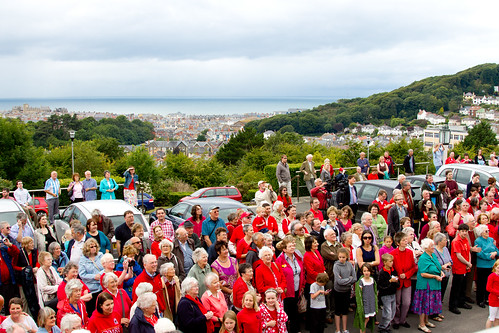
Yesterday was the centenary of the laying of the foundation stone of the National Library of Wales, and the promotions people there arranged a "human chain" (or as they called it a "cwtsh" - or "hug") around the building to note the event.
It needed at least 400 people to stand in line to actually reach around the building, and this was easily achieved, with loads to spare - so there must have been many more than 400 there on the day. Not bad, as the weather was cold and damp. I gave up on the queue for the free warming cuppa after the event, such was the demand!
I hope that the government were watching and listening, as its definitely time to prepare for the next phase of the building, as the "TLB" (Third Library Building) opened by the Queen in 1996 was designed for 25 years of growth, but looks to be filling up already.
Friday, July 15, 2011
Rural Broadband in extra time and photo of the day...
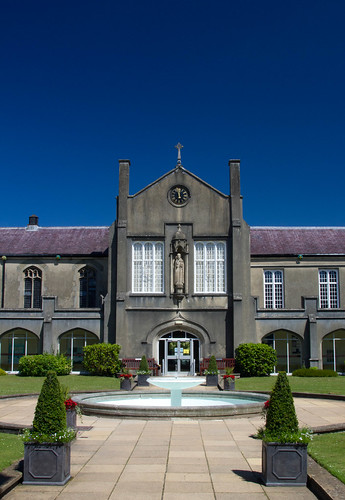
The University at Lampeter, in for yet another merger...
Recently there have been a number of reports, graphics in the press and so forth relating to the dire coverage of "fast broadband" (or rather lack of) across the UK, and in particular most of Wales and the Scottish Highlands.
So just to give you townies reading a little hint of what this can mean for us hicks in the sticks, here's a little story...
Yesterday it was nice and sunny, and I decided it was the right time to wander off and take some stock photographs of a few important Welsh sites, now rather ignored or forgotten (no, not self portraits ;-). It was to be a round trip of around 60 miles (absolutely totally impossible by public transport, but that's yet another gripe for another day).
The trip, getting from place to place, getting slightly lost, in and out of the car, walking around, taking shots, checking facts, getting home, loading the photos, sorting the wheat from the chaff, minor retouching, exporting to the QC requirements of the picture agency, took seven hours, including a gobbled lunch.
Now I live in a large village only 4 miles from Aberystwyth, the biggest town around here, which has a university, National Library, government offices etc etc etc. Hardly the back of beyond. Uploading the files via our BT Broadband ("up to" 8MB, but more like 0.6MB in reality) took, (drum roll) - another six hours. Had I been on JANET, or at my daughter's home in Cardiff, or even in a tiny village five miles from here, or perhaps even in Aberystwyth town itself, this horribly boring task might have taken half an hour, but it took almost another "working day" to achieve. So my "day" was thirteen hours, rather than the more reasonable eight it could/should have been. And you dare not leave the upload too long, in case of a dreaded "upload encountered a problem"! When I've covered sites nearer home, the uploads actually take longer than the shoots themselves.
There is very fast broadband infrastructure nearby - almost within a stone's throw (JANET and the government network), so it's a shame that the infrastructure has grown in such an uncoordinated, non-strategic fashion. Whilst those that have the resources (taxpayers money) such as academia and government, have ensured that they get a super fast service, the small businesses that really need fast broadband so as to establish a diverse sustainable rural economy are left to the whim of BT and others. And as the main employers in the area are academia and government - already served by their own infrastructures - there isn't much scope for BT and others to make big bucks just from the likes of me.
If I was young and starting out on my own, rather than the settled old semi-retiree that I suppose I am, I'd have to factor the rural "broadband lag" into my business equation, and quite honestly, I'd have to set up somewhere else.
Wednesday, July 13, 2011
Monday, July 11, 2011
TV heritage on-line: EUscreen conference
Date: 15-16 September 2011
Location: National Library of Sweden, Humlegården, Stockholm.
EUscreen, the best practice network for Europe’s television heritage, organizes its Second International Conference on Use and Creativity. The conference takes place in Stockholm on 15 and 16 September 2011. The programme consists of two workshops, a plenary session with keynotes and case studies by renowned experts in the field.
Attendance is free but on-line registration is required.
Conference programme:
At the international conference, EUscreen will discuss the online potential of European television heritage. The conference will explore creative approaches to enhance online accessibility of European television heritage. The goal is to expand methods to reach a wide range of users and to increase their engagement with online heritage materials.
The conference programme consists of a plenary session with keynotes and case studies by renowned experts in the field. On the second day of the programme, attendees will take part in two workshops. The first workshop is about EUscreen’s user community and how EUscreen services can be exploited with the objectives of learning, research, leisure/cultural heritage and creative reuse in mind. The second workshop will be on exploring funding opportunities and devising sustainable business models for the digitisation of audio-visual material.
Confirmed speakers:
• Lynn Spigel (Northwestern University, USA)
• Dagan Cohen (Upload Cinema, NL)
• Kajsa Hedström (Swedish Film Institute, SE)
• Johan Axhamn (Stockholm University, SE)
• Aubery Escande (Europeana, NL)
• Jérôme Bourdon (Tel Aviv University, IL)
• Dana Mustata (Utrecht University, NL)
• Pere Arcas (Televisió de Catalunya, ES)
• Roland Sejko (Cinecittà Luce, IT)
• Andreas Fickers (Maastricht University, NL)
• Marius Snyder (PrestoCentre, EU)
• Martin Bouda and Karel Sieber (Česká televize, CZ)
Please go here for programme updates and make sure to register in time for this event.
Wednesday, July 6, 2011
Monday, July 4, 2011
Saturday, July 2, 2011
Sunday, June 26, 2011
Friday, June 24, 2011
Photo of the day 24-6-2011
Thursday, June 23, 2011
Wednesday, June 22, 2011
Tuesday, June 21, 2011
Photo of the day 21-6-2011
Monday, June 20, 2011
Assessing State aid for films and other audiovisual works - Public Consultation
Assessing State aid for films and other audiovisual works - Public Consultation
Deadline: 30 September 2011
The European Commission has launched a public consultation as the first step of a review of the criteria used to apply EU state aid rules to Member States' financial support for making and distributing films. The current Cinema Communication ishttp://www.blogger.com/img/blank.gif 10 years old. The Commission has published an issues paper identifying areas for reflection, such as competing to attract major film productions using state aid, and supporting activities other than production. The Commission invites interested parties to submit their comments by 30 September 2011.
One of the questions concerns film heritage:
"Since most European films receive public support, it could help to develop film culture/literacy and ensure that supported films are safeguarded for future generations if such funding is conditional on the supported films being deposited and available for cultural/educational use. Should a new Communication invite Member States to do so, especially if the public funding is over 50% of the film's budget?"
If you would like to reply to the public consultation, please follow this link:
Wednesday, June 15, 2011
30 years of science on photographic conservation
June 20-23, with a subsequent two day epilogue for the National Conference. Both of them
will take place at the Conference venue Escuela Superior de diseño de La Rioja in the city of Logroño.
Sunday, June 12, 2011
Il Cinema Ritrovato Festival
Monday, June 6, 2011
Saturday, June 4, 2011
Photo of the day 4-6-2011
Wednesday, June 1, 2011
Saturday, May 28, 2011
Friday, May 27, 2011
Photo of the day 27-5-2011
Tuesday, May 24, 2011
EU Directive on orphan works
The full proposal can be found here
Monday, May 23, 2011
Friday, May 20, 2011
Wednesday, May 18, 2011
Tuesday, May 17, 2011
Doing it the French way
Via EFG - many thanks Mari.
The French government has signed an agreement with 6 French "societés détentrices de catalogues" (Europacorp, Gaumont, Pathé, SNC, Studio 37 and StudioCanal) in order to digitise at least 1000 feature films in French language. The agreement was signed on 15 May 2010 in Cannes, in the presence of the "Societé des auteurs et compositeurs dramatiques" and the Cinémathèque Française. The agreement is open to other cinematographic right-holders. Under this agreement, the State may finance up to 70% of the cost of digitisation. Digitised films should meet at least the 2K standard. In return, the right-holder should commit itself to do a commercial exploitation of the digitised works.
The agreement (in French) can be downloaded from
http://www.cnc.fr/web/fr/actualites/-/liste/18/135306
In addition, the French CNC has announced a complementary support scheme for the digitisation of cinematographic works of highly artistic and cultural value. In principle, this should cover silent films and shorts. The scheme will also support the transfer to film of digitised films, when this is required to ensure its long-term preservation.
More information can be found on:http://www.cnc.fr/web/fr/actualites/-/liste/18/135306
For info on state support of the film and media industry in Europe, visit this site.
Monday, May 16, 2011
Clearing Orphan Films
Free conference in Amsterdam - but HURRY. Booking form here.
Developing best practices for rights clearing and the IPR management of cinematographic works has been one of the aims and challenges of the European Film Gateway project which is about to end this August. Although the EFG partner archives will be provided with the necessary tools to clear rights for the film-related material they want to publish online, one major question remains unsolved: how to facilitate access to and provide for the legal use of orphan works on Europeana and other cultural heritage portals?
The conference would like to provide a platform to continue the discussion between the involved stakeholders and address the following key questions and issues:
- How is the orphan works issue dealt within Europeana and the Europeana group of projects?
- Which models do they consider appropriate to clear rights and facilitate online access to orphan works: legal solutions, contractual agreements, extended collective licensing, risk management?
- Which models are applicable for the film heritage sector and which are not?
- Examples of best practices for rights clearing and IPR management within European film archives
The conference is organised and hosted by EYE Film Institute Netherlands, leader of the EFG Work Package “IPR Management and Administration”. EYE is supported by ACE , the Association of European Film Archives and Cinematheques, initiator of EFG and one of the leading protagonists in the orphan works debate.
Attendance of the conference is free of charge, however, please note that the amount of seats is limited.
Sunday, May 15, 2011
Photo of the day 15-5-2011
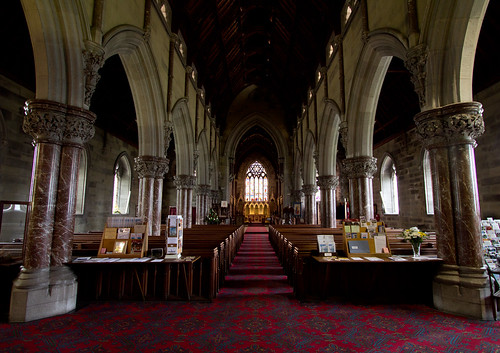
The "Marble Church" at Bodelwyddan (click through and view the whole photo - view at original size!).
ST. Margaret's has its own website and domain. Find out more here.
However, the church is best know for its Canadian "mutiny" graves.
Tuesday, May 10, 2011
Library of Congress National Jukebox
LC Press Release...
The Library of Congress and Sony Music Entertainment today unveiled a new website of over 10,000 rare historic sound recordings available to the public for the first time digitally. The site is called the "National Jukebox" (www.loc.gov/jukebox/).
Developed by the Library of Congress, with assets provided by Sony Music Entertainment, the National Jukebox offers free online access to a vast selection of music and spoken-word recordings produced in the U.S. between the years 1901 and 1925.
The website was launched at a Library news conference featuring an appearance by Grammy-winning pianist, singer and actor Harry Connick, Jr. The Columbia recording artist performed the song "I’m Just Wild About Harry," which is on the site performed by composer Eubie Blake.
"This amazing collection is a chance to hear history," said Librarian of Congress James H. Billington, who joined Connick and officials of Sony Music Entertainment at the press event. "This collection includes popular music, dance music, opera, early jazz, famous speeches, poetry and humor. It is what our grandparents and great-grandparents listened to, danced to, sang along with. This brings online one of the most explosively creative periods in American culture and music and one of the finest additions to the Library's American Memory materials."
"We are thrilled to be joining with the Library of Congress to launch the National Jukebox," said Richard Story, President, Commercial Music Group, Sony Music Entertainment. "As the steward of much of the output from the American recording industry prior to 1934, Sony Music is excited to preserve and share online these important cultural treasures from its archives with students, historians, and music-lovers alike, and create new audiences for and appreciators of the many extraordinary works from the pre-1925 era."
The agreement for the National Jukebox grants the Library of Congress usage rights to Sony Music’s entire pre-1925 catalog—comprising thousands of recordings produced by Columbia Records, OKeh, and Victor Talking Machine Co. among others – and represents the largest collection of such historical recordings ever made publicly available for study and appreciation online.
Works by Fletcher Henderson, Al Jolson, George M. Cohan, Eddie Cantor, Will Rogers, Alberta Hunter, Sergei Rachmaninoff, Leopold Stokowski, Arturo Toscanini, and opera stars Enrico Caruso, Nellie Melba and Geraldine Farrar are all covered, as are such original recordings as the Paul Whiteman Concert Orchestra's "Rhapsody in Blue" with George Gershwin on piano, and Nora Bayes' "Over There."
Visitors to the National Jukebox will be able to listen to available recordings on a streaming-only basis, as well as view thousands of label images, record-catalog illustrations, and artist and performer bios. In addition, users can further explore the catalog by accessing special interactive features, listening to playlists curated by Library staff, and creating and sharing their own playlists.
At launch, the National Jukebox will feature recordings exclusively from Sony Music’s Victor Talking Machine Co. catalog, and include songs and other materials such as the Original Dixieland Jazz Band performing "Livery Stable Blues"—considered the first jazz recording ever released—Lena Wilson singing "T’aint Nobody’s Biz-ness If I Do" (1923), and the famed Ziegfeld Follies star Fannie Brice singing "My Man."
In addition, the collection will include early jazz, many blues songs and novelty songs meant to evoke laughter (such as the 1908 "Cat Duet" that simulated the sounds of cats yowling in the night), and recordings made for distinct ethnic groups, such as Irish songs or home-nation music beloved by immigrants to the U.S.
Not just limited to music, users also can access political speeches by Theodore Roosevelt, Woodrow Wilson, William Jennings Bryan and William Howard Taft, recitings of famous popular poems such as "Casey at the Bat" and "Wynken, Blynken and Nod," readings from the Bible and early sound-effects records such as a collection of snores and sneezes.
The website will showcase special interactive features as well, including a digital facsimile of the 1919 edition of the famous opera guide "Victrola Book of the Opera," which describes more than 110 operas, including illustrations, plot synopses and lists of recordings offered in that year. Features include the book’s original text, a comparison of the different interpretations of the most popular arias of the period, and streamed recordings of nearly every opera referenced in the book.
The National Jukebox additionally will include playlists annotated by Library staff, focusing on different genres, time periods, themes and artists. Users also will be able to create their own playlists to post on their own webpages and social networking sites or submit them to the Library for posting on the National Jukebox site.
Other features include pages of background information on both the creation of the National Jukebox and audio-preservation practices.
The recordings featured in the National Jukebox were made using what is known as the acoustical process, which predates the use of microphones. Speakers spoke into, or singers sang into, cones which vibrated an attached diaphragm and stylus, etching sound waves onto a rotating wax disc. These original discs later could be converted into masters used to mold the records sold for home use.
Metadata for the website’s Victor content will be cataloged and controlled by comprehensive discographic data compiled by the University of California, Santa Barbara (UCSB) for their online "Encyclopedic Discography of Victor Records" http://victor.library.ucsb.edu/). The Library’s association with UCSB will provide users with an easily searchable database of every recording in the National Jukebox.
"This represents a strong step in the Library’s efforts to return out-of-circulation recordings to public access," said Gene DeAnna, head of the Library’s Recorded Sound Section. "Sony Music’s commitment to making its recordings more accessible is unprecedented. We will seek additional donors and contributors in an effort to develop the most comprehensive website of historic sound recordings and related interpretive content."
Library of Congress Launches, with Sony Music Content, the National Jukebox, an Online Destination for Historical Sound RecordingsLargest Collection of Historical Recordings Ever Made Publically
Available Online
Founded in 1800, the Library of Congress is the nation’s oldest federal cultural institution. It seeks to spark imagination and creativity and to further human understanding and wisdom by providing access to knowledge through its magnificent collections, programs and exhibitions. Many of the Library’s rich resources can be accessed through its website at www.loc.gov and via interactive exhibitions on a personalized website at myLOC.gov.
Sony Music Entertainment houses the libraries of both Columbia and Victor (now RCA), the two oldest record companies in existence, and many historical recordings are contained in its archives. The very first label, Columbia, was started in 1887 by men working in partnership with the inventors of the wax cylinder, the first successful sound reproduction format, and in 1890 released the first musical entertainment recording, the John Philip Sousa band's "Washington Post March." The Victor Talking Machine Company, founded in 1901, was created by the inventors of the first successful sound-on-disc reproduction system.
Sunday, May 8, 2011
Photo of the day 8-5-2011
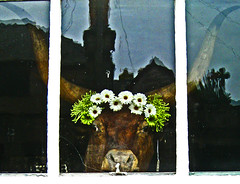
I've just cheered up, remembering that it'll soon be time for the next Hay Festival! Why this picture? It shows a shop window at Gelligandryll - Hay on Wye, the home of the festival.
Saturday, May 7, 2011
Photo of the day 7-5-2011
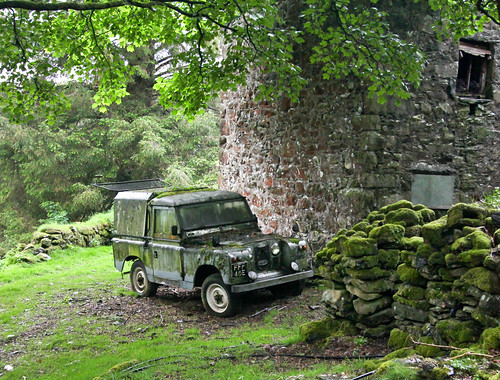
A remote and disused mill on the Quaker Trail, near Dolgellau, north Wales.
There were once many Quakers in this area, and many left for America to avoid constant persecution. Brynmawr University, Pennsylvania is named in honour of Rowland Ellis who emigrated from his home, Brynmawr farm, which is passed on this trail.
